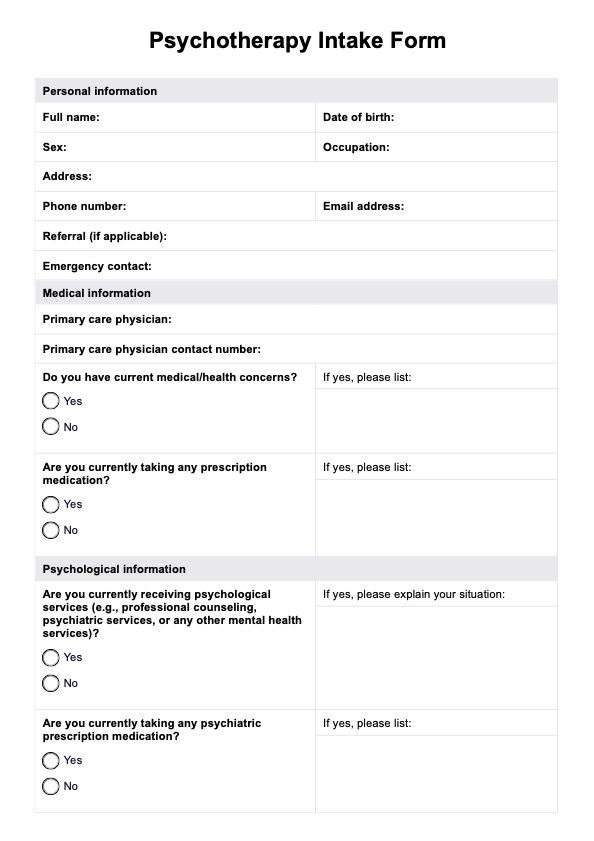Therapists use patient intake forms to gather important client information before the first session. This helps them understand the client's needs and concerns and can inform the course of treatment.

Psychotherapy Intake Form
Simplify and streamline the intake process for new clients seeking therapy services with our Psychotherapy Intake Form.
Use Template
Psychotherapy Intake Form Template
Commonly asked questions
While it may not be mandatory, many therapists require clients to fill out an intake form before the first session. This ensures the therapist has all the necessary information to provide effective treatment.
A Psychotherapy Intake Form typically includes personal and medical history, mental health history, current symptoms, and goals for therapy.
EHR and practice management software
Get started for free
*No credit card required
Free
$0/usd
Unlimited clients
Telehealth
1GB of storage
Client portal text
Automated billing and online payments











